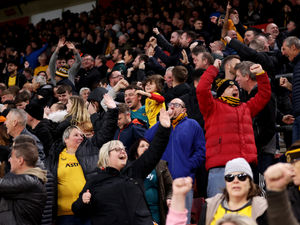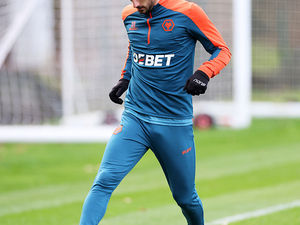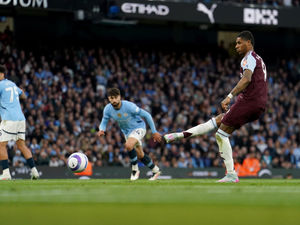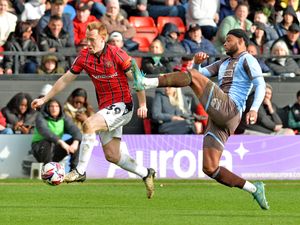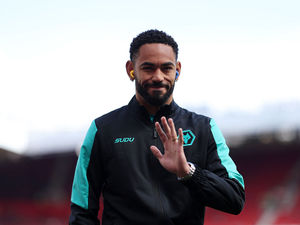Johnny Phillips: Great Danes made the most of their late call-up
It was the day the gatecrashers made off with the silverware. At the time it was the biggest upset in the history of the competition. Tomorrow is the 30th anniversary of Denmark’s European Championship victory, the country’s greatest moment on the football stage.
With a population of just over five million, Denmark had never been considered a major force in world football but six years earlier they had assembled the most talented side in their history. The 1986 World Cup in Mexico saw Morten Olsen, Jan Molby, Jesper Olsen, Soren Lerby, Frank Arnesen, Michael Laudrup and Preben Elkjaer join forces. Two years earlier the Danes had reached the semi-finals of Euro ‘84 and they topped the Group of Death in Mexico with wins over favourites West Germany and Uruguay, who were memorably demolished 6-1.
But no sooner had hopes been raised back home, the Danes crashed out to Spain in the round of 16 with a demoralising 5-1 defeat. Two years later, in the European Championship, Denmark finished bottom of their group without a point and that downward trajectory continued with failure to qualify for the 1990 World Cup.
The backdrop to Euro ‘92 was the fall of the Iron Curtain. The Soviet Union qualified for the tournament but took part as the Commonwealth of Independent States (CIS) following its dissolution by the end of December 1991. Yugoslavia also qualified but the Yugoslav wars, which began in 1990, led to the disqualification of the team just 10 days before the tournament began. Instead, as the runners up of their group, Denmark were awarded the final place.
Held in Sweden, Euro ‘92 was the last tournament of just eight teams so although Denmark were rank outsiders they would clearly have qualified in the bloated format of today. Star player Michael Laudrup had fallen out with manager Richard Moller Nielsen and retired from international football but younger brother Brian, who had also publicly expressed his reservations about the manager’s abilities, made himself available after a spell away from the squad.
A goalless draw with England and a 1-0 defeat to the hosts looked like condemning the Danes to a group stage exit, but an unlikely win against group favourites France took them through to the semi-finals.
Unlike the golden generation of the Eighties, this was a team characterised by work-rate and discipline in defence rather than flair. Nielsen, who had spent over a decade in charge of the Under 21s in Denmark, was not the first candidate the Danish Football Association (DBU) wanted and was not a popular choice among the senior players.
In 1990 the German coach Horst Wohlers was appointed to the job but could not contractually leave his club, Bayer Uerdingen, so the DBU turned to Nielsen instead. He had been undermined by the DBU chairman Hans Bjerg-Pedersen who, on originally appointing Wohlers, claimed, “My grandmother could have achieved the same results as Richard Moller.”
On failing to qualify for Euro ‘92 several of Nielsen’s squad publicly criticised the manager’s approach, but he remained in charge after Yugoslavia’s late withdrawal.
With Germany beating Sweden 3-2 in the previous evening’s semi-final, Denmark’s match against Holland was viewed as a formality for the star-studded Dutch side who were aiming to retain the trophy they had won four years earlier and now had the added incentive of a final against their arch-rivals on the horizon.
The game in Gothenburg was a classic. Midfielder Henrik Larsen put Denmark in front before Dennis Bergkamp equalised. A second from Larsen regained the lead until the 86th minute, when Frank Rijkaard sent the match into extra-time. With no further scoring, the penalty shoot-out pitted two of Europe’s great goalkeepers against each other: Hans van Breukelen and Peter Schmeichel. The Manchester United man emerged as the hero, saving Marco van Basten’s spotkick.
Schmeichel was again on top form in the final, keeping Berto Vogts’ team at bay while John Jensen and Kim Vilfort scored the goals at the other end to secure a surprise 2-0 win. If Nielsen’s team had been scratchy in the group stage, nobody could begrudge their success after beating the tournament’s two best sides in the knock-out format.
Two of the heroes from the final became familiar names in England. Schmeichel already had one season under his belt at Old Trafford and lifted the Premier League title the following season. He played a key role in United’s dominance throughout the rest of the decade.
Jensen, meanwhile, was signed from Brondby by George Graham at Arsenal, who had won the title one year earlier. The midfielder could not recreate his scoring touch, waiting 98 matches before scoring his solitary goal for the Gunners. The highlight of his stay in England came with victory in the 1993 FA Cup Final. He returned to Brondby in 1996.
Denmark, meanwhile, failed to qualify for the 1994 World Cup despite the return to the fold of the older Laudrup brother. Nielsen bowed out as manager after an underwhelming Euro ‘96 which saw the Danes finish third in their group behind Croatia and Portugal.
The triumph in Sweden 30 years ago still stands as one of the great shocks of European Championship history, along with Greece’s victory at Euro 2004, and Denmark remains the smallest country to win the tournament. Nielsen died in 2014 at the age of 76. He was never universally accepted by the football fraternity in his home country, but his legacy was secured in that glorious summer of 1992.

